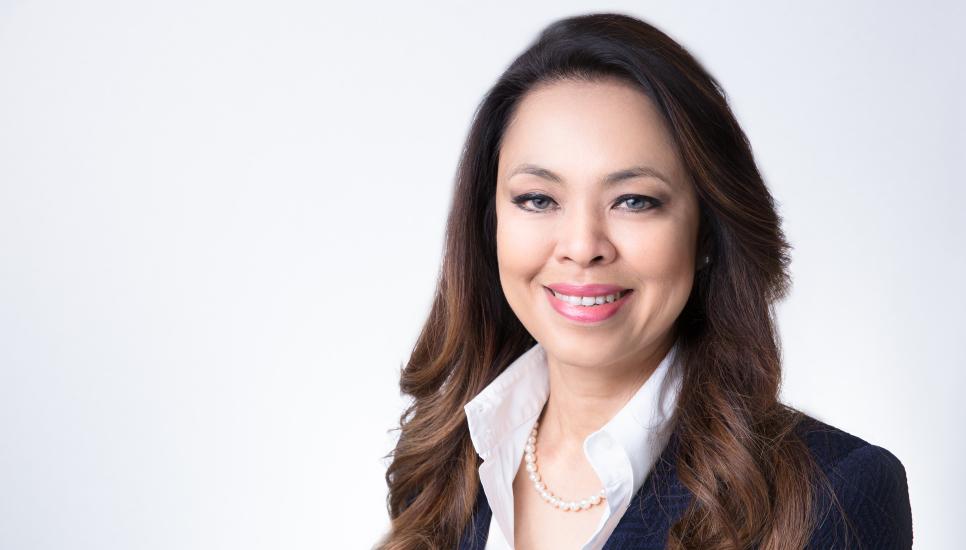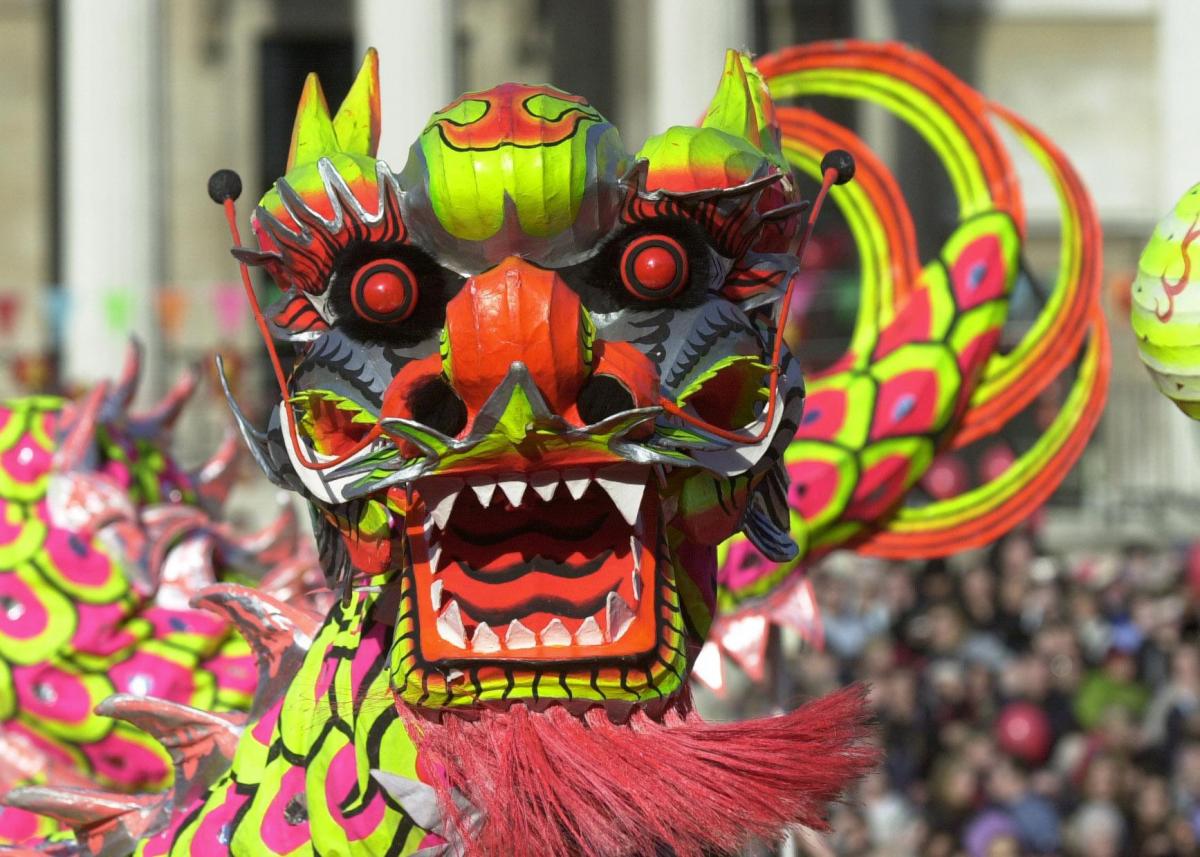Up close and personal: Perspectives on Asian family offices

The world's financial centre of gravity is shifting to Asia and Asian family businesses are a major factor. But the family office concept is in its infancy compared to Europe and North America and western wealth managers struggle to forge enduring business relationships. Azlinda Ariffin-Boromand, partner at WithersWorldwide, says it all starts with chopsticks.
It has often been said in Asia, you only do business with another because you trust them. An over-rated concept, easier said than done. You cannot build trust if you do not communicate but it has also been said that if you do not know how to hold chopsticks, you cannot talk to the Chinese businessman.
Real communication, as opposed to the “casual talks”, is a real challenge in Asia. It begins with the simple (or not) task of making suitable efforts, such as holding chopsticks correctly. It shows willingness and respect to one's culture, a foundation for mutual trust between parties.
Still, it is a challenge.
A big part of Asian wealth remains controlled bythe patriarchs or matriarchs of the families. These early migrants were poor, didn't have formal education and spoke very little English. How do you explain the concept of hedge funds in the Teochew dialect and even the word “family office?” What is the Teochew equivalent? Asia isn't homogenous.
Even among the Chinese, there are China Mainland Chinese, the Hong Kong Chinese, the Singapore Chinese and the Malaysian Chinese and they are all different. Furthermore, the new generation families are of mixed backgrounds and cultures. They speak many Asian languages with inherited multiple business cultures spanning generations. The language barrier would make gaining trust and confidence of older generations and family members even more of a challenge for wealth managers, in particular those who are expanding from Europe or the United States.
Circle of trust
Trust requires a lot of relationship building, which takes time, and if you push too hard, you will never get into the inner circle. What is key is that you are either "in" or "out" of their trust circle. If you are in, your opinion will be valued in and across multiple areas of concern. The question is how you get in to being part of the circle of trust as outsiders.
The concept of family businesses has always been just that?within "family". However, this could extend to close friends of the families, which over generations have worked together and through thick and thin, tested each other's loyalties.
It is certainly not and cannot be done overnight, not even with professional "trusted" advisers who arrived with big private bank or law firm brands behind them. A family only trusts those within the family or people "like us" as only those within the circle could truly understand and "feel" what the other's values and objectives are having gone through the same challenges (and opportunities), themselves.
 Nonetheless, facts remain that Asia is home to a third of the world's ultra-high net worth people and as a market, can easily make or break a multinational's bottom line. With assets still predominately held by the first and second generations, the heads of most wealthy Asian families remain as key decision makers and they are often keen to stay actively involved in managing their own assets. This is despite the fact that many of Asia's wealthy families are facing a transition period which involves shifting control of the family's wealth to later generations. Hence, the idea of a family office - an institutionalised and formalised model that is dedicated to the financial, corporate and personal needs of wealthy families, is still a foreign concept to many of the region's high net worth individuals. Asian wealth is relatively new and control is more often with the family patriarch or matriarch, rather than the professionals.
Nonetheless, facts remain that Asia is home to a third of the world's ultra-high net worth people and as a market, can easily make or break a multinational's bottom line. With assets still predominately held by the first and second generations, the heads of most wealthy Asian families remain as key decision makers and they are often keen to stay actively involved in managing their own assets. This is despite the fact that many of Asia's wealthy families are facing a transition period which involves shifting control of the family's wealth to later generations. Hence, the idea of a family office - an institutionalised and formalised model that is dedicated to the financial, corporate and personal needs of wealthy families, is still a foreign concept to many of the region's high net worth individuals. Asian wealth is relatively new and control is more often with the family patriarch or matriarch, rather than the professionals.
In spite of these challenges, Asia's potential for growth for family offices is widely regarded as huge. Amid concerns about development in Europe and a slowdown in the US, companies seeking the next growth phase are turning their attention to Asia, helping to propel the region's economic growth. Asia's surging wealth is creating more millionaires and billionaires. Issues such as wealth preservation and succession planning have therefore become more of a concern, helping to propel the growth of family offices.
It is close
Consolidated reporting is becoming a concern for Asian families and businesses. If a family is worth, for example, $500 million, the worry is not really about making the next million, rather, if your worry is if the patriarch dies tomorrow, would the children know what he has allocated to what, where and who.
There is a Chinese saying which states that the wealth of a family never lasts for more than three generations. Whilst the first generation creates wealth, the second generation preserves it. However, once the fortune is passed on to the third generation, the wealth is usually squandered. A key role of the family office is to prevent the destruction of wealth and the competition to manage that wealth is intensifying in Asia.
In the past decade, family offices from the US and western and central Europe have started to develop their presences alongside private banking units of financial institutions which have set up advisory businesses, targeting Asian wealthy families. However, Asia's varied cultures, languages and religions present challenges for family offices keen to tap into this lucrative industry. As the space become crowded with varied family office types, including those set up by investment banks such as UBS, Citigroup and HSBC - who is gaining favor among Asia's rich families?
From the families' perspectives, quite often the big banks are too keen to sell their own products to their clients and the pay of an executive at a global bank is linked to the number of new clients and the products he has sold. Therefore the interest of the bank is not exactly aligned with that of the families' which need unbiased strategic advice, not tied to selling asset management or other products.
It is personal
A close relationship built through being within the circle of trust allows "trusted" advisers to be closer to their clients and in a better position to come up with more "bespoke" services, which may include family governance, immigration and even education ranging from wealth management to wine appreciation. A family office of a single first-generation wealth family most likely act as a "private" office, which deals with personal and household matters and includes such concierge-like services.
 Within these trusted advisers, specialist "T-shaped" advisers with a broad skill sets ranging from legal, tax to investments in the industry would be attractive to newly established private family offices in Asia. In particular, law firms with wealth planning and tax expertise with adequate investment management advisory experience would have an added advantage as lawyers are generally perceived to have more rounded skills particularly, through dealing with case laws affecting families businesses in general. These advisors are ideal to work closely alongside private family offices.
Within these trusted advisers, specialist "T-shaped" advisers with a broad skill sets ranging from legal, tax to investments in the industry would be attractive to newly established private family offices in Asia. In particular, law firms with wealth planning and tax expertise with adequate investment management advisory experience would have an added advantage as lawyers are generally perceived to have more rounded skills particularly, through dealing with case laws affecting families businesses in general. These advisors are ideal to work closely alongside private family offices.
Generally, Asian families prefer to work with their internal team within these private single or multi family offices that cater only for families who know each other well. The goal of these private family offices is to generate returns that at least exceed inflation plus office charges. The wealth plans are therefore structured closely based on the values and objectives of the families, taking into consideration their individual risk profiles, income capital, family distributions and time horizons. The family can choose to keep as much or as little control of those structures they want to – depending on the tax jurisdiction, some structures are better than others.
By and large, tax advisory would form a starting point as a major part of the families' wealth spread across different countries and asset classes. Tax planning is very important and is often viewed as a sort of a rate of return for savings. Despite the growing wealth of Asian families, their risk appetite is rather conservative. This again goes back to the nature of the family businesses, when you have a company that has so many family members, for most of the time you are not able to take high risks as it could easily get complicated especially for a family business that is already in the third generation and which involves multiple families.
A more holistic approach when structuring a family office's services would therefore is to look into three perspectives – family, business and wealth management and in that order. Family harmony is key as if the family business is having problems, it would be difficult for the family to focus on investment returns.
Structure
As Asia's wealth transitions, the region's rising generations, who are more business savvy than their predecessors - either through their educational or professional background, are more receptive towards the establishment of "formal" offices to help manage the family assets. This will help underpin growth in the industry.
Although Hong Kong and Singapore are the two prime locations for the Asian super wealthy to set up at least the principle family office, there are not yet explicit “family office” laws and regulations. Regulatory exemptions would be applicable only if the internal funds and the family offices are structured correctly.
 Whatever form the family office takes, the key is to structure it right to suit the particular needs of the ultra-high net worth family and meet the relevant regulatory requirements. Some Asian families want to pursue unique strategies to invest in private deals or alternative asset classes. Their family offices would act as manager or adviser to the family's internal funds. The popular tools to organise the family's investment platform include limited partnership, standalone corporate fund, segregated portfolio companies, and unit trusts usually created using offshore laws (mostly Cayman), and occasionally Singapore law.
Whatever form the family office takes, the key is to structure it right to suit the particular needs of the ultra-high net worth family and meet the relevant regulatory requirements. Some Asian families want to pursue unique strategies to invest in private deals or alternative asset classes. Their family offices would act as manager or adviser to the family's internal funds. The popular tools to organise the family's investment platform include limited partnership, standalone corporate fund, segregated portfolio companies, and unit trusts usually created using offshore laws (mostly Cayman), and occasionally Singapore law.
Another increasing popular tool, which works well as part of a family office type structure, is the private trust company (PTC) established to be trustee of a trust, or a group of family trusts, and they are usually created using offshore laws (such as those of Jersey, Guernsey, BVI or Cayman). The key attraction is that the settlor of the trust, and other family members can sit on the board, and where there is a family office this can provide professionals as directors too. Thus the family and individuals of their choice retain control in the structure.
Capital preservation versus growth
In times of volatile market conditions, Asian wealthy families are treading cautiously more than ever. The businesses are very personal, there are so many potholes and the road ahead is not clear, leading to longer time in decisions being achieved. It is very common for the families to take a step at a time. Families would err on the side of caution and prefer prudence through thoughtful risk management and keeping all investment strategy as simple as needed in order to understand it and focus on value. In today's world, over a three to five year time horizon and zero interest rate policy or generally low interest rates, the Asian families would be happy if the portfolio generated an annual compounded return of 6% to 8%. Their asset allocation is likely to be based on their global macro view, which has tended to be on the bleaker side since well before 2008. Post 2008, families have also engaged in more direct equity investments.
Still, there is such a high concentration of first generation wealth in the region that many ultra-wealthy still have an appetite for further growth. The focus is not only balanced between preserving a good amount of capital, but also putting some capital at risk for the hope of further growth.
 For the ultra-wealthy, opening an investment company is just part of a business model. These families are essentially business owners who have taken companies public, or they are past business owners who just sold a portion or all of their business to a private party and cashed out on their business they built up in the past. As they have made their fortunes investing, they are comfortable investing for themselves. Many of the investments in Asia are therefore private equity, and the families also have good networks from which they can draw investment ideas and implement them.
For the ultra-wealthy, opening an investment company is just part of a business model. These families are essentially business owners who have taken companies public, or they are past business owners who just sold a portion or all of their business to a private party and cashed out on their business they built up in the past. As they have made their fortunes investing, they are comfortable investing for themselves. Many of the investments in Asia are therefore private equity, and the families also have good networks from which they can draw investment ideas and implement them.
Generally in Asia, only the most confident and sophisticated families would feel comfortable opening their own investment offices because of the challenges involve in managing a private investment office. Even then, the private investment programmes would still involve private equity deals that the families do themselves, and are done for strategic reasons that complement the family's core business.
Family members' involvement in the family office is also dependent on how knowledgeable and sophisticated they are in finance and investment products. Even if there is only one investor, i.e the family itself, its private equity programme was set up similar to any outside firm. The office may have a Cayman Island fund structure, a Cayman Island manager vehicle and an onshore investment advisory vehicle for say, Asia programme, Europe programme and US programme separately. Each may have teams on the ground in all these locations with clear strategic focus on what type of deals to look for. Selecting fund managers and doing deals "in-house" are totally different skill sets. Most families will also have a management fee structure to incentivise its in-house managers, no different from an institution in order to attract talents. Decision-making is via an investment committee which comprise both family members and outside professionals.
Blessing in a disguise
During and after any global financial crisis, Asian families always see more opportunities emerging as deals became cheaper. The office would usually review its portfolio and because it holds its assets for the long-term and with a strategic angle, there should not be any need to do a fire-sale or reallocation. From time to time, family offices do have to look into family members' "pet" projects and offer the services to execute the projects on their behalf, and managing it for them. Funding for these projects is made by the family members themselves.
Unlike their European or American counterparts, where the family business may have been sold a couple of generations ago, wealthy Asian families are still in the first or second generation of wealth creation, with the focus on the family business. Traditionally, there has been a reluctance to bring in third-party professional advisers in Asia. Still, some family offices do outsource some of their money to external managers and typically, these are the families that have already sold their core business and would focus more on asset preservation and capital appreciation. They will be more risk-adverse and they would require predictable liquidity annually to support their living. They would therefore be more inclined to invest in fixed income, listed equity, some real estate and perhaps a small part in alternative assets. They would tend to invest more through an outside managers due to specialised skillsets in these asset classes.
 Generally, Asian families do not tend to invest in any third party funds because they would usually have their own private equity managers. They would do deals directly and are very focused in the sectors they invest in and very often would want to cherry pick the deals because of their unique positions. The offices are increasingly teaming up with private equity funds and buyout firms (as well as competing against them) to do global acquisitions. They are providing financing to startups, buying into distressed assets, debts, real estate and esotoric insurance products. They are lending to companies and becoming more of activist shareholders of multinationals.
Generally, Asian families do not tend to invest in any third party funds because they would usually have their own private equity managers. They would do deals directly and are very focused in the sectors they invest in and very often would want to cherry pick the deals because of their unique positions. The offices are increasingly teaming up with private equity funds and buyout firms (as well as competing against them) to do global acquisitions. They are providing financing to startups, buying into distressed assets, debts, real estate and esotoric insurance products. They are lending to companies and becoming more of activist shareholders of multinationals.
Given the specific needs of the ultra-wealthy in Asia and cultural differences between the Asian families and their counterparts in Europe and the US, there certainly is no one standard approach or formula that be applied to meet the needs of family offices in the region. As wealth continues to build in Asia, especially in the fast-emerging markets, demand for international or multi-jurisdictional wealth and succession-planning services has increased to assist the private family offices.
Withers, with its strategic offices throughout Asia as well as cross the board expertise, is well positioned to be in this inner circle and would do well in teaming up with the Asian family offices to preserve and expand their wealth.






